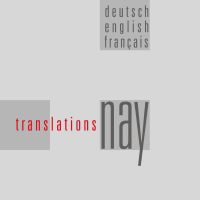| Pages in topic: [1 2] > | Bank charges for transfers in euro zone Thread poster: Lia Fail (X)
|
|---|
Lia Fail (X) 
Spain
Local time: 00:22
Spanish to English
+ ...
I have done a number of jobs for Holland (2 companies), Germany (3 companies) and France (2 companies) in recent months.
No problem with the Dutch and the German companies, I got the amount on my bills.
With the FR companies however, I ended up paying massive bank charges, in one case 7 euros, in the other almost 10.
Aren't we supposed to be in a common monetary zone? Why is it so expensive to transfer funds?
And why am I paying, rather than th... See more I have done a number of jobs for Holland (2 companies), Germany (3 companies) and France (2 companies) in recent months.
No problem with the Dutch and the German companies, I got the amount on my bills.
With the FR companies however, I ended up paying massive bank charges, in one case 7 euros, in the other almost 10.
Aren't we supposed to be in a common monetary zone? Why is it so expensive to transfer funds?
And why am I paying, rather than the companies? And why are they the FR ones only?
I have mentioned this to the bank before but they waffle on about it, and honestly, I haven't the time or patience...I do know that there is an EU directive about double charges, but how can I know what charges have been paid at source, if any?
Any advice would be appreciated. I have included a note in my invoices to teh effect that all bank charges shall be paid by the payer, but this may well be ignored. ▲ Collapse
| | | | Pee Eff (X)
Germany
Local time: 00:22
English to German
+ ...
Ailish Maher wrote:
Aren't we supposed to be in a common monetary zone? Why is it so expensive to transfer funds?
Hi Ailish!
It is not expensive anymore to transfer money within the EU! Starting July 1st last year, all banks were commited to charge their clients not more for an intracommunitary transfer than what they would for a national transfer. This is law now and at least here in Germany it works just fine! At my bank I pay exactly the same for transferring money to Spain than what I pay for transferring money to my local bookstore: NOTHING AT ALL! This is not normal either, but my bank account includes national transfers for free, and as European transfers are supposed to cost the same as national ones...
Well, what I wanted to say is that small transfer fees are normal, but 10 euros is way over the top! You should talk to that French agency again and send them the link to the EU Directive. And of course you are absolutely right: The supplier's cannot be charged the client's bank fees!
Good luck!
Patrick
| | | | Heinrich Pesch 
Finland
Local time: 01:22
Member (2003)
Finnish to German
+ ...
| Complain straight to the customer | Apr 25, 2004 |
Hi1
It depends, how the customer does the transfer. If he does not use EU-transfer and the special code-numbers IBAN and BIC, the bank charges accordingly.
I have one German customer whos book-keeper used sometimes to 'forget' the new procedere and I got charged 6,73 euro. After I started to put this money on my next invoice they finally learned.
| | | |
[Edited at 2004-06-13 15:21]
| | |
|
|
|
Ralf Lemster 
Germany
Local time: 00:22
English to German
+ ...
Hi Ailish,
Heinrich is right, I think:
It depends, how the customer does the transfer. If he does not use EU-transfer and the special code-numbers IBAN and BIC, the bank charges accordingly.
Precisely.
Do you quote your IBAN and BIC on your invoices to international customers? I would suggest to quote these details only, so it's clear that they must use these.
Marijke is also right regarding the precise meaning of the directive - a bank charging for domestic euro transfers is entitled to charge for standard cross-border payments, too. But I cannot believe that any bank would charge between 5 and 10 euros for a domestic transfer, so I think it's more likely that your customer did not specify IBAN and BIC. Ask them to send you a copy of their bank's payment confirmation: you should be able to see the instructions they specified.
A final point worth noting is that euro standard payments should always be instructed as "SHR" payments (meaning that the costs are shared between sender and recipient), in which case the benefit of the directive's provisions apply.
Best regards, Ralf
| | | | 3 in 1
Local time: 00:22
French to German
+ ...
| The problem could be the french bank... | Apr 25, 2004 |
I sent out some money from France to Austria recently and both, the Austrian and the French bank charged (about 3 EUR each).
I called the Austrian bank and they told me that they had got the transfer without BIC and IBAN. But I HAD mentioned the codes! I called the French bank and they told me:
"BIC and IBAN? We have never used that in the past and it has always been working like that. We don't even have enough cases on the forms to put all those numbers..."
... See more I sent out some money from France to Austria recently and both, the Austrian and the French bank charged (about 3 EUR each).
I called the Austrian bank and they told me that they had got the transfer without BIC and IBAN. But I HAD mentioned the codes! I called the French bank and they told me:
"BIC and IBAN? We have never used that in the past and it has always been working like that. We don't even have enough cases on the forms to put all those numbers..."
I hope you enjoy this story as much as I do. ▲ Collapse
| | | | Heinrich Pesch 
Finland
Local time: 01:22
Member (2003)
Finnish to German
+ ...
| Software out of date | Apr 25, 2004 |
Some banks may still use outdated software, but I do all my transfer online since the 1980's. Possibly French banks are slower to adapt than others. But it's your client's choice, if he uses oldfashioned banks he should pay the fees.
| | | | Lia Fail (X) 
Spain
Local time: 00:22
Spanish to English
+ ...
TOPIC STARTER
In reply to the issues raised.
Firstly, in Spain I pay a charge of 2.70 for all transfers to accounts not held with my own bank, I always pay this when I pay people who have done work for me, apparently it's the norm to charge this at source.
Secondly, I always provide my SWIFT and IBAN details in invoices for abroad.
I also understand from what people are saying that a Spanish bank CANNOT charge me more than they charge me for a domestic transfer, which i... See more In reply to the issues raised.
Firstly, in Spain I pay a charge of 2.70 for all transfers to accounts not held with my own bank, I always pay this when I pay people who have done work for me, apparently it's the norm to charge this at source.
Secondly, I always provide my SWIFT and IBAN details in invoices for abroad.
I also understand from what people are saying that a Spanish bank CANNOT charge me more than they charge me for a domestic transfer, which is zero, since the transferrer always pays.
Does anybody have any documentary evidence in the form of an EU directive or Spanish legislation that will support my case?
I will contact both companies and query the costs.
Thanks for the info. ▲ Collapse
| | |
|
|
|
Sabine Nay 
Germany
Local time: 00:22
Member (2002)
English to German
+ ...
| Caution: more than one "domestic fee" | Apr 25, 2004 |
I recently had a similar problem. A Spanish bank told us that they had introduced a *second* "domestic fee" which they apply to transfers within the Euro zone (I think it was about EUR 12!!).
A couple of days later I saw a program on German TV which confirmed that Spanish and Greek banks in particular have been quite inventive in getting round the European directive.
Sabine
| | | | Lia Fail (X) 
Spain
Local time: 00:22
Spanish to English
+ ...
TOPIC STARTER | article from EU site | Apr 25, 2004 |
http://www.google.es/search?q=cache:RWQjU9wXd6UJ:www.eubusiness.com/imported/2003/06/113776%20bank%20charges%20EU%20transfers%202004&hl=en
Cheaper bank transfers for EU customers
30 June 2003
BRUSSELS, June 30 (AFP) - European bank clients will face lower charges from Tuesday thanks to new EU rules slashing the cost of cross-border transfers made in euros.
Banks have been forced to charge the same for cross-border euro transfers within the European Union as they do for domestic transfers.
The new regulation will lead to an average 24 euros being cut from a 100-euro transfer from one EU country to another, the European Commission said.
The regulation will bring intra-EU bank transfers into line with withdrawals from automated teller machines.
Since July 2002 banks have not been allowed to charge customers any more for withdrawing euros from a cash machine in another EU country than they would incur at home.
"The advantages of the single currency should benefit everyone: that is the aim of the regulation," Commission president Romano Prodi said.
The regulation will apply to transfers of up to 12,500 euros.
Customers must provide their bank with the beneficiary's IBAN (International Bank Account Number) and BIC (Bank Identifier Code), which from July 1 must appear on bank statements in the EU.
NOW all I need to do is locate the specific legislation, so if anyone can help....
TIA:-) ▲ Collapse
| | | | | They are a rip-off anyway | Apr 25, 2004 |
Whatever way you look at it they are there to make money and not work for you without any benefit. I'll just say that in Spain and it was a personal transaction my brother transferred from his Spanish bank account to my Spanish bank account 10.000 Euros and he was charged 30 Euros for the transfer......good god.
| | | | Lia Fail (X) 
Spain
Local time: 00:22
Spanish to English
+ ...
TOPIC STARTER | from 1 July 2003, all Euroland charges must be the same | Apr 25, 2004 |
I finally found the info, reproduced here for the record. The regulation details are below.
http://europa.eu.int/rapid/start/cgi/guesten.ksh?p_action.gettxt=gt&doc=IP/03/901|0|AGED&lg=EN&display=
EU Regulation aligns charges for cross-border transfers in euros
IP/03/901
Brussels, 26th June 2003
... See more I finally found the info, reproduced here for the record. The regulation details are below.
http://europa.eu.int/rapid/start/cgi/guesten.ksh?p_action.gettxt=gt&doc=IP/03/901|0|AGED&lg=EN&display=
EU Regulation aligns charges for cross-border transfers in euros
IP/03/901
Brussels, 26th June 2003
EU Regulation aligns charges for cross-border transfers in euros
*****As from 1 July 2003, cross-border bank transfers in euros within the EU will cost the same as domestic transfers*****, bringing significant savings for customers. This measure is being introduced in accordance with Regulation (EC) No 2560/2001 on cross-border payments in euros, which establishes the principle of equal charges for domestic and cross-border payments. The rule came into force in July 2002 for bank card payments and withdrawals from cash machines (see IP/02/941 and MEMO/02/154); it will now apply from 1 July 2003 onwards to bank transfers. In recent years, a €100 transfer has cost the customer on average €24 in charges (see IP/01/1293 and MEMO/01/294). For more details on the Regulation, see also Frequently Asked Questions MEMO/03/140.
Commission President Romano Prodi welcomed this development: "The advantages of the single currency should benefit everyone: that is the aim of the Regulation. Since July 2002 our citizens have been able to withdraw cash and make bank card purchases throughout the euro area without incurring extra costs in comparison with what they would pay in their own country. Now they will also be able to make bank transfers in euros to other countries without losing money through excessive charges. With the creation of the single payments area, the benefits of European integration can be seen in daily life."
Single Market Commissioner Frits Bolkestein added: "This Regulation is essential for the efficient functioning of the Single Market. When goods or services are sold across a border, payments cross the same border in the opposite direction. If the cross-border payment generates extra costs, the Single Market is not functioning properly. The high level of charges for cross-border transfers has been a real barrier to free movement."
Payments concerned
***The principle of equal charges will apply to transfers in euros of up to €12 500 made between two euro accounts within the EU.****
***In order to qualify for equal charges, customers must provide their bank with the beneficiary's IBAN (International Bank Account Number) and BIC (Bank Identifier Code).***
From 1st July 2003, all bank statements will show the account holder's IBAN and BIC. Firms engaged in cross-border business are likewise required to indicate these particulars on their invoices. It will therefore be easier for the originator of the payment to find the necessary information.
Here is the site where you can read the regulation in all the languages of teh EU:
http://www.europa.eu.int/smartapi/cgi/sga_doc?smartapi!celexapi!prod!CELEXnumdoc&lg=en&numdoc=32001R2560&model=guichett
32001R2560
Regulation (EC) No 2560/2001 of the European Parliament and of the Council of 19 December 2001 on cross-border payments in euro
Official Journal L 344 , 28/12/2001 P. 0013 - 0016
Article 3
Charges for cross-border electronic payment transactions and credit transfers
1. With effect from 1 July 2002, charges levied by an institution in respect of cross-border electronic payment transactions in euro up to EUR 12500 shall be the same as the charges levied by the same institution in respect of corresponding payments in euro transacted within the Member State in which the establishment of that institution executing the cross-border electronic payment transaction is located.
2. ****With effect from 1 July 2003 at the latest, charges levied by an institution in respect of cross-border credit transfers in euro up to EUR 12500 shall be the same as the charges levied by the same institution in respect of corresponding credit transfers in euro transacted within the Member State in which the establishment of that institution executing the cross-border transfer is located.**** ▲ Collapse
| | |
|
|
|
Lia Fail (X) 
Spain
Local time: 00:22
Spanish to English
+ ...
TOPIC STARTER | No, it's not my bank | Apr 25, 2004 |
Sabine, I have examined my receipt, and the charges were made, as far as I can see, at source. It was the Banco Español de Credito, so maybe banks here have an agreement with the BCE to charge at source. As for transfer from the other companies I mentioned in Germany, etc, I have paid a fee, I think it was 2.70, so that would tie in with your observation, but it seemed not excessive, so I didn't make a fuss.
Sabine Nay wrote:
I recently had a similar problem. A Spanish bank told us that they had introduced a *second* "domestic fee" which they apply to transfers within the Euro zone (I think it was about EUR 12!!).
A couple of days later I saw a program on German TV which confirmed that Spanish and Greek banks in particular have been quite inventive in getting round the European directive.
Sabine
| | | | | BIC and IBAN are the key | May 28, 2004 |
Ailish Maher wrote:
I have done a number of jobs for Holland (2 companies), Germany (3 companies) and France (2 companies) in recent months.
No problem with the Dutch and the German companies, I got the amount on my bills.
With the FR companies however, I ended up paying massive bank charges, in one case 7 euros, in the other almost 10.
Aren't we supposed to be in a common monetary zone? Why is it so expensive to transfer funds?
And why am I paying, rather than the companies? And why are they the FR ones only?
I have mentioned this to the bank before but they waffle on about it, and honestly, I haven't the time or patience...I do know that there is an EU directive about double charges, but how can I know what charges have been paid at source, if any?
Any advice would be appreciated. I have included a note in my invoices to teh effect that all bank charges shall be paid by the payer, but this may well be ignored.
Hi Ailish:
I had a German client do a transfer for me and they specifically asked me for this information. The BIC code is a series of 8 letters of so, the IBAN is the first 2 letters of your residence country followed by your a/c nº.
HTH
Jason
| | | | | Pages in topic: [1 2] > | To report site rules violations or get help, contact a site moderator: You can also contact site staff by submitting a support request » Bank charges for transfers in euro zone | Protemos translation business management system |
|---|
Create your account in minutes, and start working! 3-month trial for agencies, and free for freelancers!
The system lets you keep client/vendor database, with contacts and rates, manage projects and assign jobs to vendors, issue invoices, track payments, store and manage project files, generate business reports on turnover profit per client/manager etc.
More info » |
| | Trados Studio 2022 Freelance |
|---|
The leading translation software used by over 270,000 translators.
Designed with your feedback in mind, Trados Studio 2022 delivers an unrivalled, powerful desktop
and cloud solution, empowering you to work in the most efficient and cost-effective way.
More info » |
|
| | | | X Sign in to your ProZ.com account... | | | | | |











